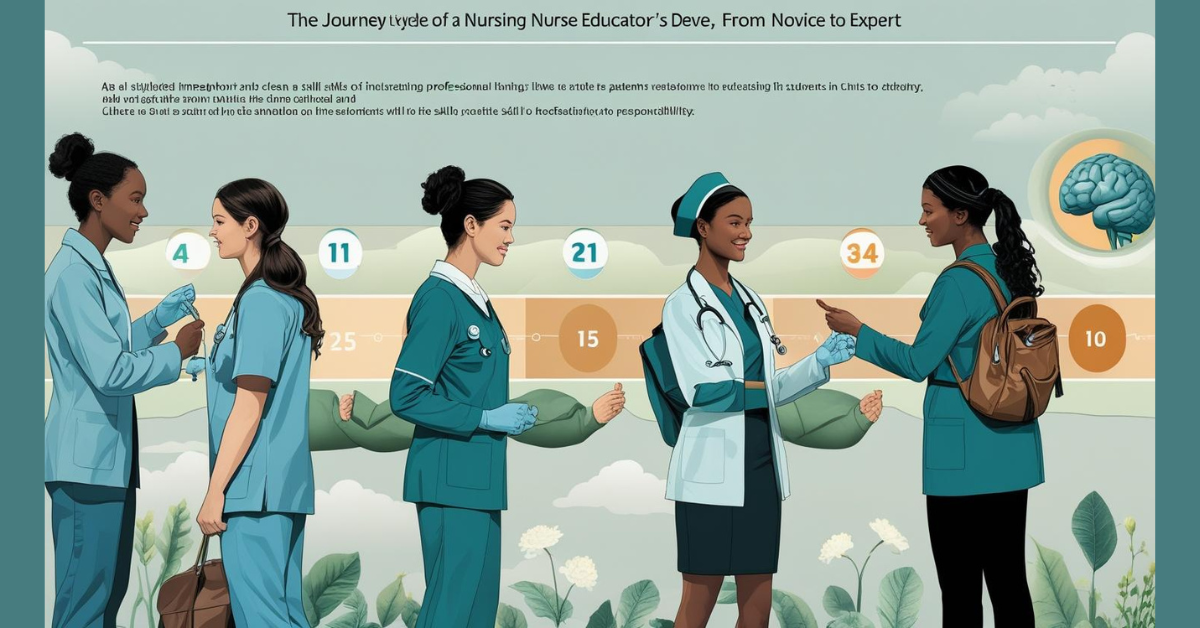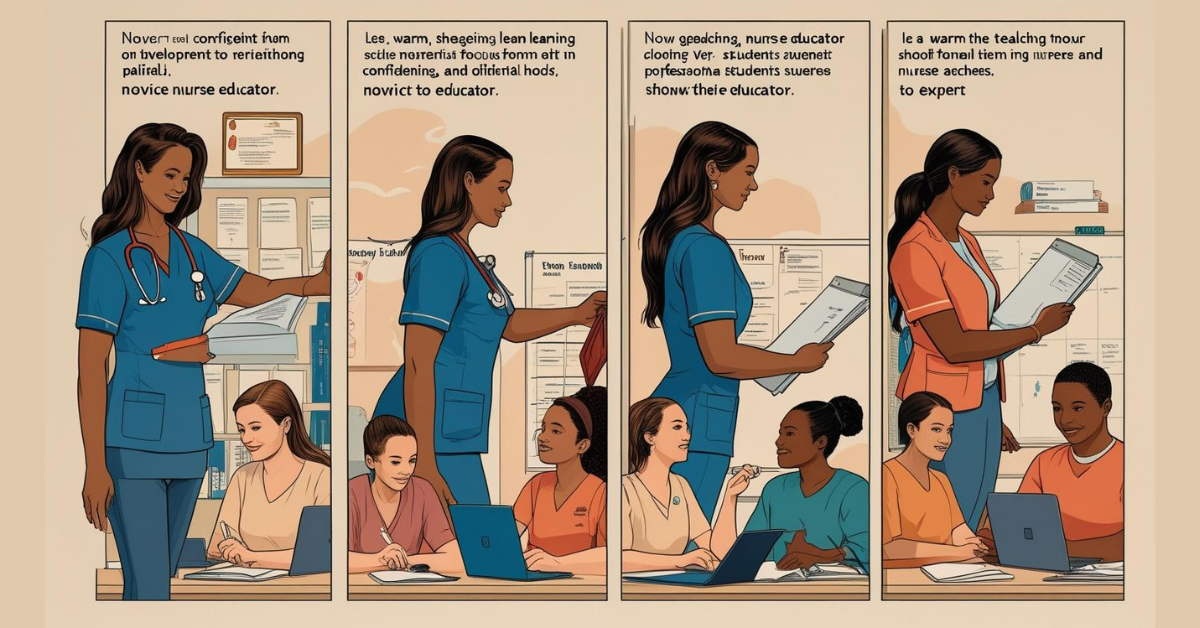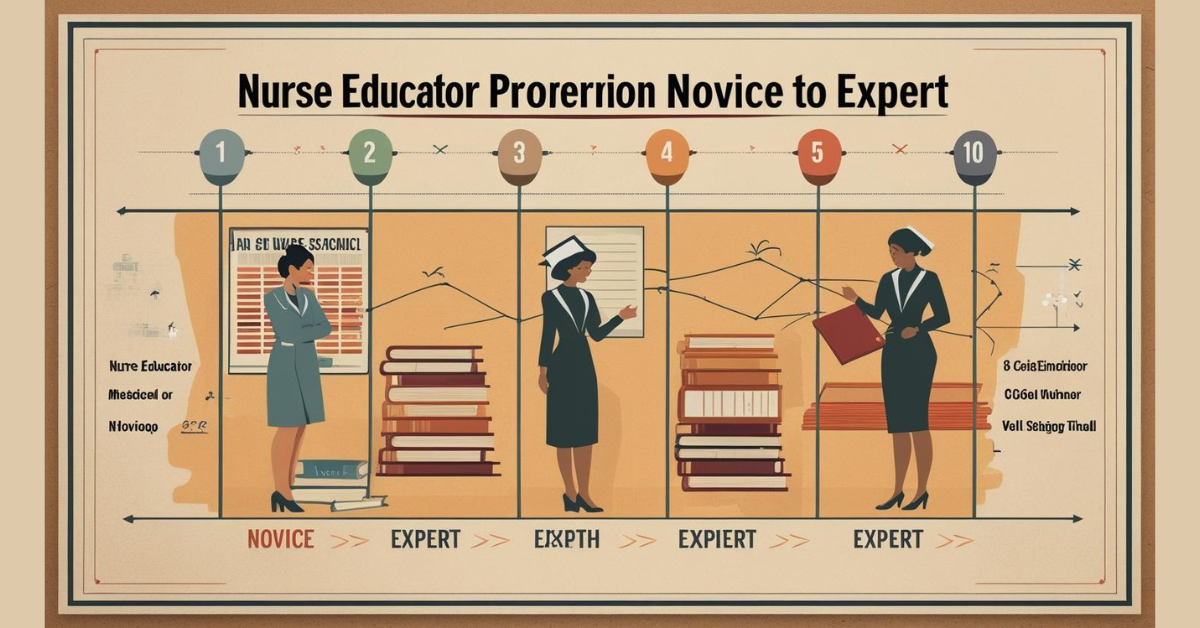In nursing education Role Transition As A Nurse Educator and Novice to Expert Development in healthcare education for new students.
Using Partnerships And Cognitive Apprenticeship To Become: Role Transition As A Nurse Educator
This is an exciting, albeit challenging, time to become a nursing educator. It is challenging because health care is in crisis with the acute shortage of nurses. This shortage is compounded by the nursing faculty shortage that is projected to increase over the next decade (Rosseter, 2004). Many bright individuals who are interested in nursing as a career are being turned away because of an insufficient number of nursing faculty members.
It is exciting because much is being covered about brain physiology and its effect on learning; evidence-based teaching methods are the expectation, and the technology explosion has hit the classroom. Nurse educators today need expertise in pedagogy and nursing in order to effectively instruct the next generation of nurses.
The transition to nursing educator and leader in the profession can be facilitated by developing partnerships with colleagues, peers, and mentors in nursing education. “Partnerships are mutually beneficial, professional relationships between and among nurses” (Heinrich et al., 2005, p. 34). Developing expertise as an educator, transitioning from clinician to educator, and developing competence will be discussed using cognitive apprenticeship.
 Cognitive apprenticeship is a framework in which teaching is aimed at conveying the thinking process that experts use to handle complex tasks (Collins, Brown, & Newman, 1989). Learning to become a nurse educator involves being able to break down complex tasks into sequential steps to be explained or demonstrated to nursing students. The nurse educator also role models critical thinking and asks questions that promote critical thinking of nursing students.
Cognitive apprenticeship is a framework in which teaching is aimed at conveying the thinking process that experts use to handle complex tasks (Collins, Brown, & Newman, 1989). Learning to become a nurse educator involves being able to break down complex tasks into sequential steps to be explained or demonstrated to nursing students. The nurse educator also role models critical thinking and asks questions that promote critical thinking of nursing students.
Cognitive apprenticeship, which refers to “the focus of learning through guided experience on cognitive and metacognitive processes” (Collins et al., 1989, p. 457), will help nurse educator students to master these teaching skills. Although nursing education in the past focused on performing tasks and psychomotor skills development, nursing today requires critical thinking, reasoning, and judgment that must be developed as part of nurses’ basic education.
Teaching students how to learn, not just what to learn, is essential in this age of accelerated change and innovation (Murphy, 2005). Nurse educators must be experts at teaching and learning, as well as at nursing. Cognitive apprenticeship—which is found in literature on adult education, developing expertise, and teaching mathematical reasoning processes—can help.
Linking cognitive apprenticeships and partnerships optimizes learning and professional socialization in those graduate students in nursing education will learn to share their gifts and talents with colleagues and foster a pass-it-on mentality. This offers a solution to the crisis of an insufficient supply of nursing educators. Using both the partnership perspective of fostering mutually beneficial relationships and the cognitive apprenticeship perspective of developing expertise will facilitate the transition from clinician to educator.
Graduate education is a challenging but transformative experience, one that can be facilitated by supportive relationships. Caring for oneself is essential to being able to role model caring for others in the nurse educator role. Successful partnerships provide the care for self that is essential in nursing education.
Novice to Competent to Expert: A Progression
Novice nurses struggle when they first perform a physical assessment on a patient. Reading about the sequencing of skills and actually performing them is not the same. Although the novice nurse may have used the framework of head-to-toe assessment to guide performance, ease and fluidity are absent. According to the works of Benner (1984) and Dreyfus and Dreyfus (1986), the beginning nurse is a novice.
For the novice, information is processed according to context-free rules and skills are performed according to a precise sequential process where modifications are unlikely. Benner, Dreyfus, and others (Ericsson & Smith, 1991; Itano, 1989) who have studied the novice-expert continuum in learning, report that skill acquisition is situational and dependent upon experience. Like the novice nurse, the new nurse educator is a novice in this new role.
Although the beginning nurse educator has content knowledge of nursing, her pedagogical knowledge and application is lacking. A novice nurse educator will need some help and support with setting priorities. By the end of a graduate education program, the former novice should be a competent nursing educator. Although proficiency and full expertise is generally not mastered until 10 years of job experience, competency takes 2 to 3 years to develop.
Achieving competency results in the ability to analyze a situation and cope with problems abstractly. Expertise develops over time as the educator takes rule-based strategies and modifies or adapts them to fit in a variety of situations. When considering the work on novice-expert progression, and developing expertise, experience is critical. Although many adult learning theorists believe that the learner’s experience provides a rich resource for learning (Caffarella & Barnett, 1994; Dewey, 1938; Kolb, 1984; Mezirow, 1995), not all practical experience leads to learning (Brehmer, 1980).
Unless the learner connects new experience to earlier knowledge, the learner misses an opportunity for learning (Dewey, 1938; Schon, 1991; Sheckley, 1997). It is generally understood that reflection on an experience—noting similarities that substantiate current understanding of the concept, and differences that enhance one understands—will provide a broad knowledge base.
From a learning perspective, more experiences will lead to the development of a prototype in which the most common elements seen in practice form the basis for an expectation of the usual course associated with that practice. Over time, however, the expert comes to recognize that the unusual may occur. The unusual events (considered outliers in a normal curve) broaden one’s understanding of a concept (Medin & Ross, 1989; Sternberg & Horvath, 1995).
For example, even though most students respond well to constructive feedback, sometimes a student will respond defensively. Predicting which students will become defensive and intervening before the situation escalates is a skill that the expert nursing educator will possess.
Graduate education shows us that although gaining competence takes time and experience; experiences upon which students do not reflect may not lead to learning. So how does one smoothly move down the path from novice nurse educator to expert educator? Partnerships and cognitive apprenticeship can help move novices along their career path.
Achieving Competence
According to Kelly (2002), “Competence is the possession of knowledge, attitudes and skills necessary to meet a certain standard of practice” (p. 27). Benner (1984) identified “competent” as one of the stages in her novice-expert model of developing expertise. In stage three, the competent nurse begins to see “his or her own actions in terms of long-range goals or plans of which he or she is consciously aware” (Benner 1984, pp. 25–26).
For the competent nurse, a plan establishes a perspective or priority of importance of aspects of a situation. The plan is based on considerable conscious, abstract, analytic contemplation of the problem. A competent nurse educator will most likely be able to:
(1) plan clinical or classroom experiences based on identified objectives
(2) anticipate student problems or concerns
(3) be prepared to circumvent or resolve issues as they arise
For example, matching patient assignments to students’ readiness and skill can be challenging even for the expert educator but supporting students by anticipating anxieties and providing resources helps to optimize the experience for both student and patient. The competent educator is able to anticipate problems and seize the teachable moment to make the most of the experience.
Developing Competence in Students
Developing competence in students is analogous to developing competence as a nurse educator. Nourish students’ efforts and practice, and expect success. Research (Wlodkowski & Ginsberg, 1995) has shown that expectation leads to the reality in practice and apprenticeships. Development of competence will be enhanced if students and their preceptors, teachers, and partners expect them to succeed.
Developing competence can be achieved best through guided practice. In essence, the need for feedback and guided practice early in the program in nursing education depicts the role modeling, coaching, and scaffolding of cognitive apprenticeship. In the beginning, reliance on others for coaching may be necessary, but as students become more proficient, they increase their self-efficacy and self-regulation of learning (Glaser, 1996; Wlodkowski & Ginsberg, 1995). Balance independence in learning with a commitment to being helped and helping others.
Developing Competence in Nurse Educators
Competence as a nurse educator cannot be achieved without practical experience. Literature on developing competence and, ultimately, expertise (Chi, Glaser, & Farr, 1988; Ericsson, 1996; Ericsson, Krampe, & Tesch-Romer, 1993) indicates that reflective practice and a variety of experiences promote the development of expertise. A variety of experiences means working with more than one preceptor, in more than one setting to broaden one’s perspective on nursing education.
Settings include clinical, laboratory, and class. Students in graduate programs should participate in opportunities in which they work with several preceptors over the course of the program of study. Student educators can maximize their learning opportunities by being open to the lessons offered by each individual helping to shape their future practice. Expectation of success and multiple experiences are two key concepts that will enhance the development of competence as a nursing educator.
Read More:
https://nurseseducator.com/high-fidelity-simulation-use-in-nursing-education/
First NCLEX Exam Center In Pakistan From Lahore (Mall of Lahore) to the Global Nursing
Categories of Journals: W, X, Y and Z Category Journal In Nursing Education
AI in Healthcare Content Creation: A Double-Edged Sword and Scary
Social Links:
https://www.facebook.com/nurseseducator/
https://www.instagram.com/nurseseducator/



You can certainly see your enthusiasm in the paintings you write. The world hopes for even more passionate writers like you who aren’t afraid to mention how they believe. Always go after your heart.